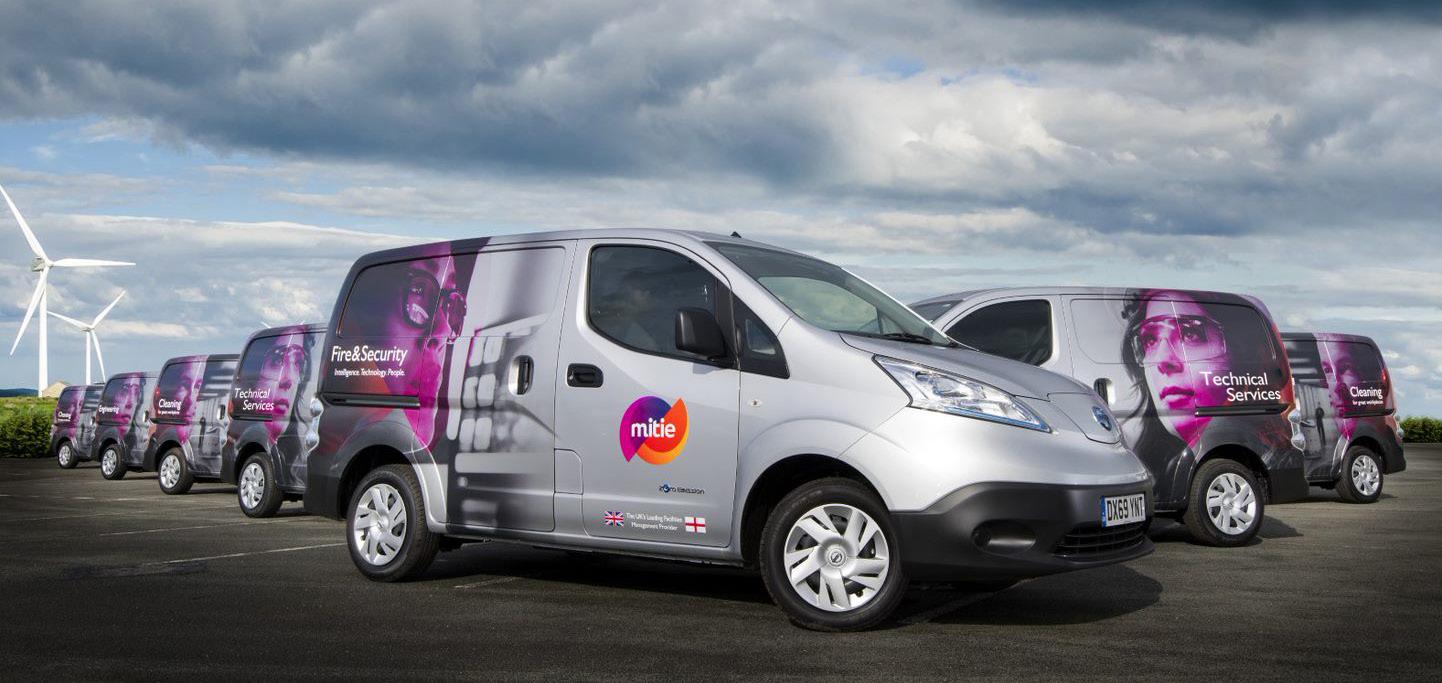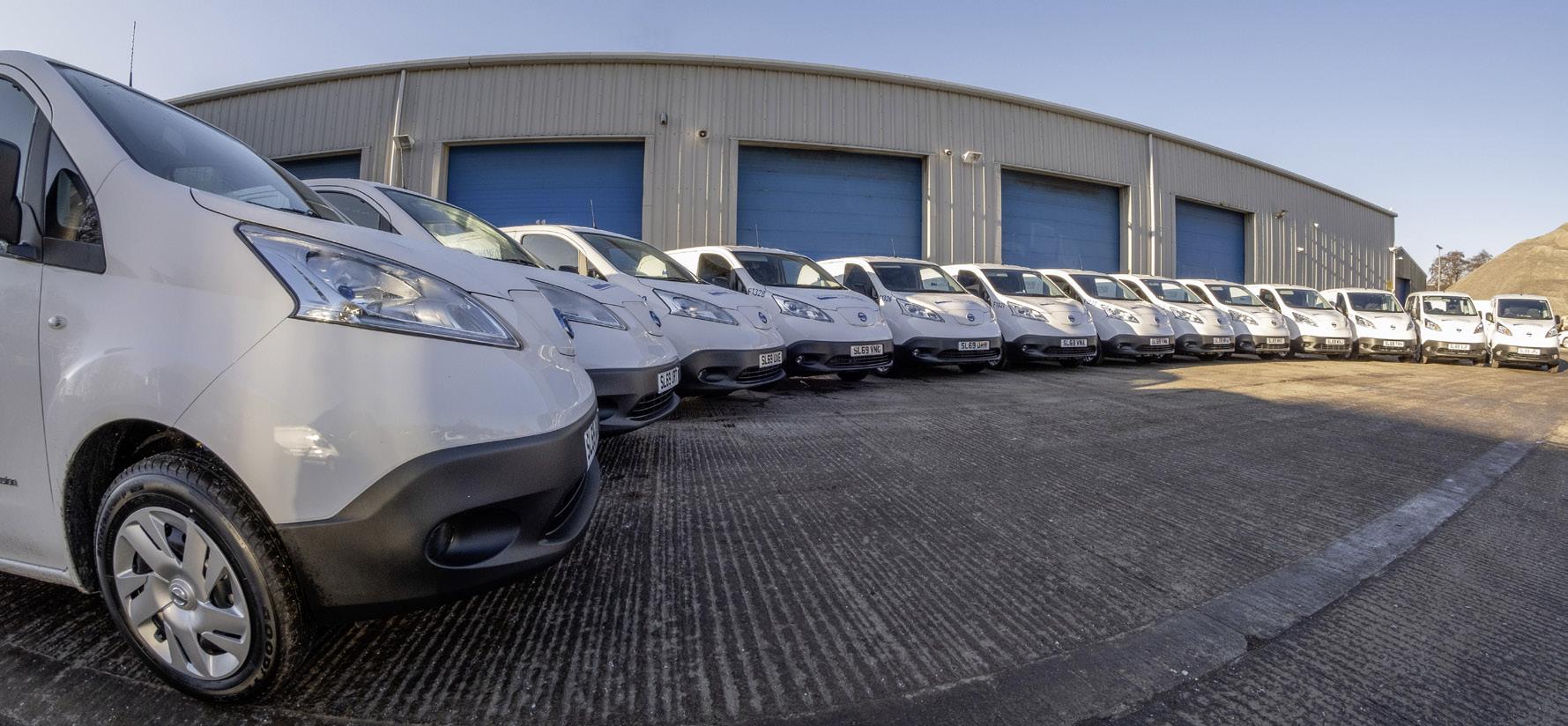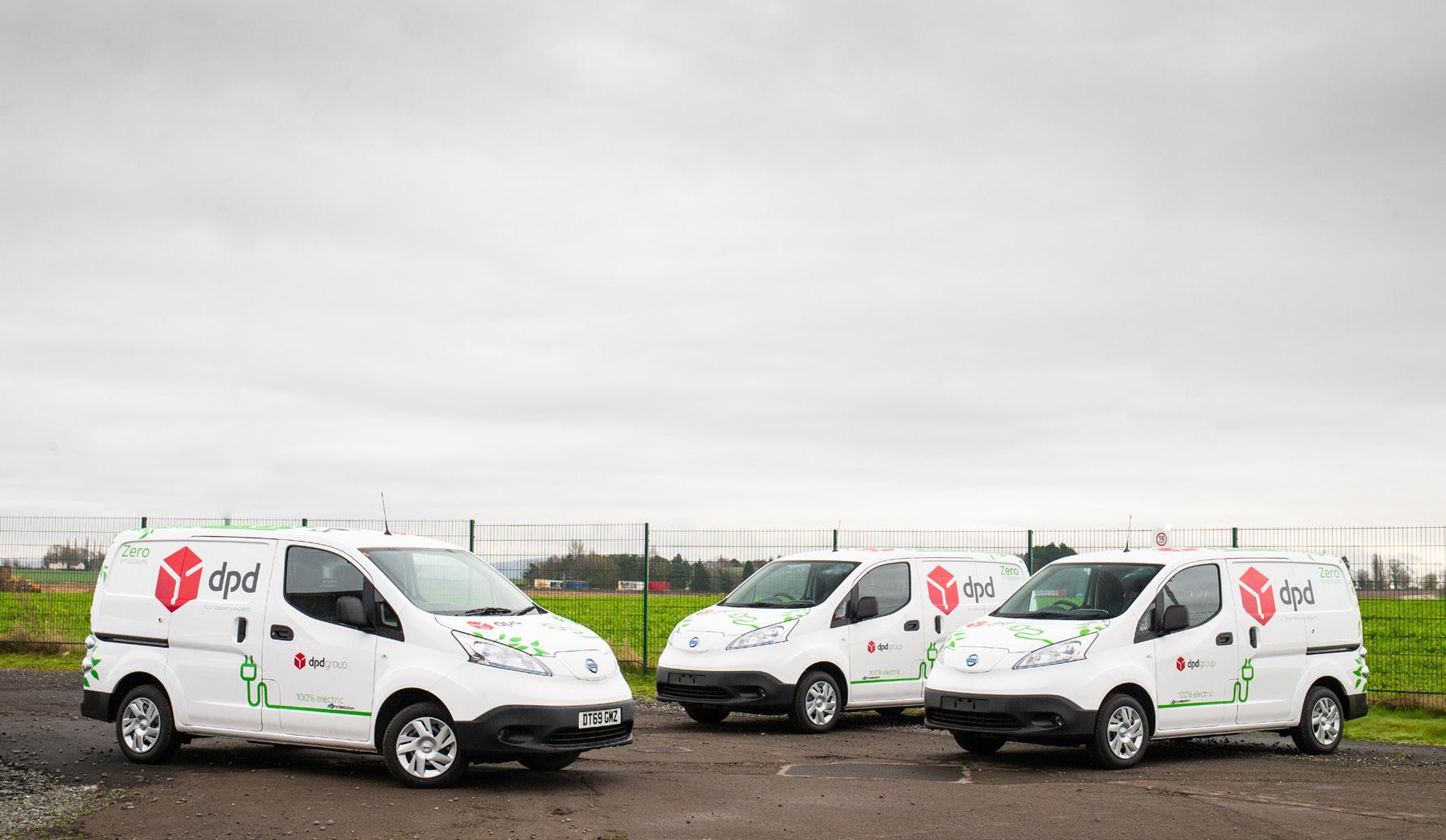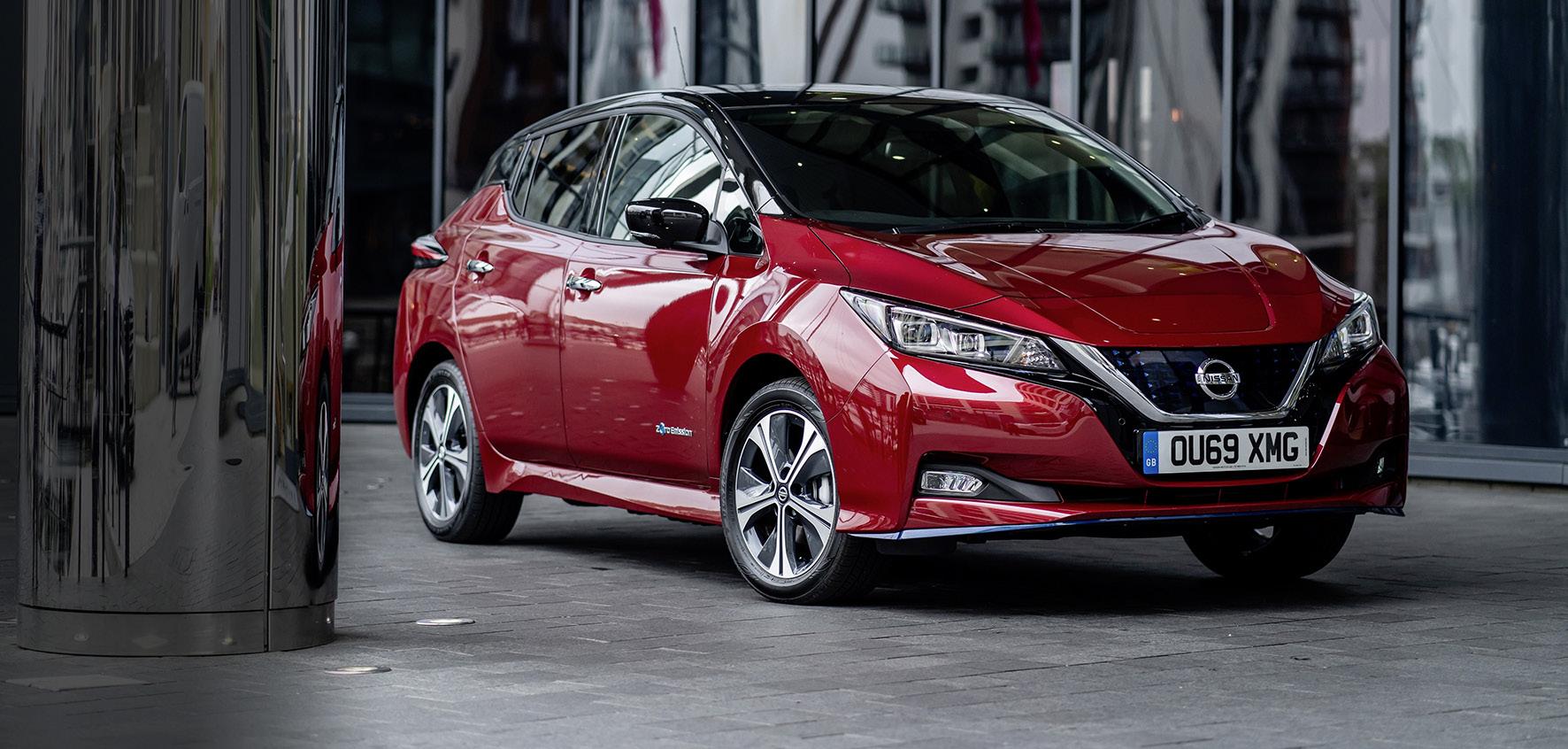
6 minute read
CASE STUDIES
Mitie is on course to hit its EV target for 2020
Company aims to have 20% of its car and small van fleet switched to electric WHILE THEY NEEDED A LITTLE TIME TO ADAPT TO ELECTRIC, OUR COLLEAGUES HAVE LOVED THE IMPROVED DRIVING EXPERIENCE AND LOWER FUEL COSTS Simon King, fleet and procurement manager, Mitie itie, the UK’s leading facilities management and professional services company, has a large fleet of around 5,500 vehicles and has already made the commitment to switch 20% (717) of its small van and company car mix to electric vehicles (EVs) by the end of 2020.
Advertisement
Mitie has been working with Nissan since late 2018, when it began its EV journey. It has 100 e-NV200 vans and 135 LEAF e+ cars, with new vehicles arriving with drivers every week.
Simon King, Mitie fleet and procurement director, says: “Our 250th EV was delivered in January 2020 and with around 400 models on order and due for delivery in Q1 2020, we are well on track to meet our target.”
Mitie said the e-NV200 was a natural choice for the company, as it was the only van with the range needed to be a viable alternative to the diesel models it currently has on the fleet.
Likewise, the LEAF e+ cars were added due to the size of the vehicle and 239-mile extended range they offer. Every Mitie driver who receives an EV will also have a charge point installed by Mitie’s partner Pod Point, at their home (provided off-street parking is available). Mitie also has a team focused on installing charge points at its offices all over the UK, with 50 already installed.
The feedback King has had from drivers of Nissan EVs on the fleet has been incredibly positive.
He says: “Many of our colleagues have been taking to Twitter, LinkedIn and our internal social media channel, Yammer, to share their photos and positive experiences. “We’ve had many comments that, while they needed a little time to adapt to it, our colleagues have loved the improved driving experience and lower fuel costs, while also playing their part in helping the planet.”
As a business, Mitie has moved away from reviewing just the purchase cost, to considering the vehicle’s wholelife cost when deciding which models to choose. Fuel costs are significantly lower, around 4p per mile compared with 12p per mile for the equivalent diesel model*. And with fewer moving parts, the service, maintenance and repair costs are much lower too.
King says: “Bearing all this in mind, our 20% by 2020 commitment is, at worst case, cost-neutral.
“With regard to cars, there’s also a significant financial benefit for our company car drivers, as electric vehicles drivers pay no benefit-in-kind tax. We’d like to see a similar financial incentive introduced for vans, so we can encourage more of our van drivers to make the switch to electric too.” M
Dundee City Council saving big on SMR

undee City Council has been a major advocate of switching to electric vehicles and it already has 129 on its fleet.
A growing part of this fleet involves Nissans with a mix of 29 LEAFs and e-NV200s, but Fraser Crichton, Dundee City Council corporate fleet operations manager, is already expanding the relationship with Nissan with a further 65 EVs scheduled to join the fleet this year.
It’s part of the council’s plans to convert 40% of its fleet of around 450 vehicles to EV by the end of this year and Crichton is working towards going 100% electric within the next five years.
The majority of Dundee’s Nissans are electric e-NV200 vans and these are used by the council’s facilities engineers, as well as for things like laundry services and cash collections.
The LEAFs are used at the council as pool cars and as part of a car-sharing scheme.
Crichton says: “The 40kWh e-NV200 is the best product on the market for the kind of work we do.
“They are replacing diesel engine equivalents. We had been having real problems with keeping diesel particulate filters clear due to a lot of our drivers doing relatively short distances for their routes.
“Dundee has been such a good location for switching on to the EV revolution due to most journeys being possible within a 20-mile radius of the city. It means EVs can comfortably complete their journeys and the city has prepared so well with infrastructure that it’s easy for drivers to charge.”
There is a council-owned network of four solarpowered charging hubs capable of taking 78 vehicles at a time (with sites for another 60 being built).
Not only does the switch to EVs with Nissan deliver on Dundee’s environmental goals, it’s also helping to save money.
Crichton adds: “We’re getting payback on these vehicles after two-and-a-half years and we’re running the vans between six and seven years.
“So, it’s cost-effective for us when looking at total cost of ownership. Maintenance has been a big area where we’re saving money. We have been really pleased with the reliability of the vehicles and we’re saving around 35% on servicing compared with the outgoing internal combustion engine (ICE) models.”
It’s early days, but there are plans to work on vehicleto-grid (V2G) with Nissan and E.ON in 2020. This will mean Dundee City Council will have greater control about how energy is managed between its fleet and the grid.
Crichton says: “I’ve worked with Nissan on EVs for the past eight-and-a-half years. They’ve always been a proactive fleet team and they come up and see us and find out what we need.
“It’s become a partnership.” Authority is replacing ICE vehicles with aim of 100% electric within next five years D
DPD expands EV fleet with 300 e-NV200s
DPD will more than triple its electric vehicle (EV) fleet by the end of May after ordering 300 40kWh e-NV200 vans.
The company aims to have 10% of vehicles as EV at all of its 68 UK depots by the end of this year as part of its strategy to be the most sustainable city centre delivery business in the UK.
The e-NV200 already makes up the majority of DPD’s fleet, with 91 successfully delivering parcels over the past 18 months.
The new vehicles will be dispatched to DPD depots

across the country in the coming weeks, where they will be used for local, multi-drop deliveries, travelling up to 100 miles a day.
DPD expects to charge the vehicles overnight at its depots, and will decide where to deploy the EVs each day using its in-house route calculation and vehicle optimisation systems.
Dwain McDonald, DPD CEO, says: “These vehicles are changing the way we work. It is an all-encompassing revolution for our industry and electric, emissionfree vehicles are at the heart of that vision.”
Uber signs deal for up to 2,000 LEAFs

Uber has signed a deal to introduce 2,000 40kWh LEAFs to London drivers that use its app as part of the ride-sharing company’s Clean Air Plan.
Nissan has put together a dedicated electric vehicle (EV) education programme, transaction price and marketing plan to drive uptake of the zeroemission vehicles.
The deal aims to help deliver Uber’s vision for every car on the app in the capital – around 45,000 drivers – to be EV by 2025.
The Clean Air Plan has raised £80 million-plus in its first year by adding a 15p per mile fee to all London journeys to help subsidise the cost of switching to an EV.
Drivers can save around £4,500 off the cost of the LEAF, dependent on the miles they’ve driven. Jamie Heywood, Uber regional general manager for northern and eastern Europe, says: “The partnership with Nissan is a significant step towards meeting our 2025 goal. The Mayor of London has shown strong leadership on measures relating to air quality and we’re proud to support him in delivering his vision.”










